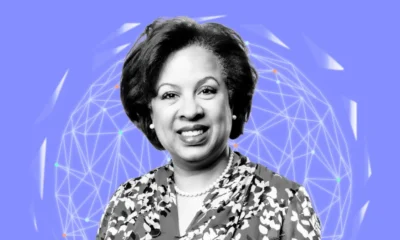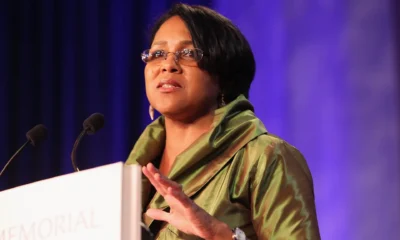Black Women in Business
Black women make waves in top-tier multinationals
Until recently, the name Priscillah Mabelane didn’t ring a bell for most of us. But after South African news outlets ran headlines like “First black female to head multinational oil industry” (IOL) and “BP appoints first black female CEO” (eNCA) last week, it does now.
Before recently taking charge of BP Southern Africa (BPSA), Mabelane spent six years serving as the chief financial officer at BPSA. And before that, she directed operations for BP’s UK retail business, after inhabiting key senior roles at the Airports Company of South Africa, Ernst & Young, and at Eskom.
Yet I must confess that before I researched her impressive credentials and work history, my prejudiced imagination went to work trying to decipher what BPSA’s “angle” was in making this appointment. It isn’t that I don’t appreciate that black women are capable of leading top-tier technology-focused corporations, but rather that I’m not entirely convinced of corporate South Africa’s commitment to backing the success of black chief executives in general – male or female.
After all, it’s telling that even in 2017, the occurrence of black executives running major companies – tech firms in particular – continues to be only slightly more common than black leopard sightings in the Kruger National Park. You might encounter one if you’re lucky.
But let’s face it, with that cat’s habitat shrinking and its numbers dwindling due to indiscriminate poaching, sightings are rare. Most people will have to make do with seeing a black leopard that’s been bred in captivity and kept at a zoo.
Unfortunately, there is a growing list of high-profile black executives – that includes the likes of former BCX chief executive Isaac Mophatlane, former Liberty chief executive Thabo Dloti, and former Dimension Data executive chairman Andile Ngcaba – who are casualties of a business ecosystem which appears to prey on black business leaders.
One can only imagine how much more challenging corporate survival must be for black women occupying C-suite roles in corporate South Africa.
Nevertheless, several earnest opinionistas I follow on Facebook have eloquently spoken out against the mainstream media spin on BPSA’s apparently progressive pick for chief executive, arguing that highlighting Mabelane’s race and gender serves to minimise her professional accomplishments and reduce her important appointment to a token gesture. I agree with this perspective. I also don’t.
You see, I’m yet to have the pleasure of encountering a wild leopard. And I assure you that should I eventually spot one while on safari, if it happens to be a black one, my followers on Twitter and Instagram won’t hear the end of it.
The inconvenient truth is that BPSA’s appointment of a black female chief executive is newsworthy for many reasons – some of which expose the depressingly prejudiced state of corporate South Africa.
Eunice Baguma Ball is the Ugandan founder and executive director of the Africa Technology Business Network. For over 10 years, Eunice has worked at the intersection of tech and social enterprise – leveraging her engineering background to build a solid reputation as a tech and innovation specialist.
In a recent interview for AfricanTechRoundup.com, Ball factored in on the state of African women in tech and commented on some of the cultural hurdles women continue to face in what is still largely an unwelcoming, male-dominated industry.
She reckons that to this day, women carving out careers in tech on the continent continue to face the challenge of being hemmed in by limiting societal norms and regressive gender and race-specific power dynamics, which have long informed the professional roles women have been expected and even permitted to take on.
The folly of our allowing societal prejudice to permeate the world of business is laid bare by a statistic drawn from the McKinsey Women Matter Africa 2016 report, which makes a strong business case for greater gender diversity in senior leadership positions. According to the research, companies with more women in executive positions tend to be more profitable – by as much as 20 percent. And yet, still prejudice against women business leaders persists.
In our conversation, Ball cited similar studies and expressed the need for African storytelling efforts to back up the inarguable data showing just how impactful women in business can be. She is poised to publish a book called Founding Women in December, which aims to put the spotlight on African female founders who are building technology businesses across Africa and the diaspora, by documenting their experiences and insights.
Young African women could certainly use more relatable female role models to inspire them to reach their full potential as innovators and tech leaders.
Meanwhile, a couple of months ago, a Zimbabwean molecular biologist named Marlene Mhangami was appointed to the board of directors at the Python Software Foundation (PSF) – making her the first African woman to occupy a board seat in that organisation. PSF is a non-profit corporation that holds the intellectual property rights behind one of the one of the world’s leading computer programming languages, Python. PSF also hosts the annual North American PyCon summit, along with other …
Please read original article- Black women make waves in top-tier multinationals



























